Spain/UK
Hi everyone! My name is Jen, and I am intern number 166. I’m from Spain, but I’ve reside in the United Kingdom for the last 12 years. I’m a Registered Nurse and I originally came to Obubu to learn more about tea and its health properties, also to experience Japanese culture (and gastronomy!)
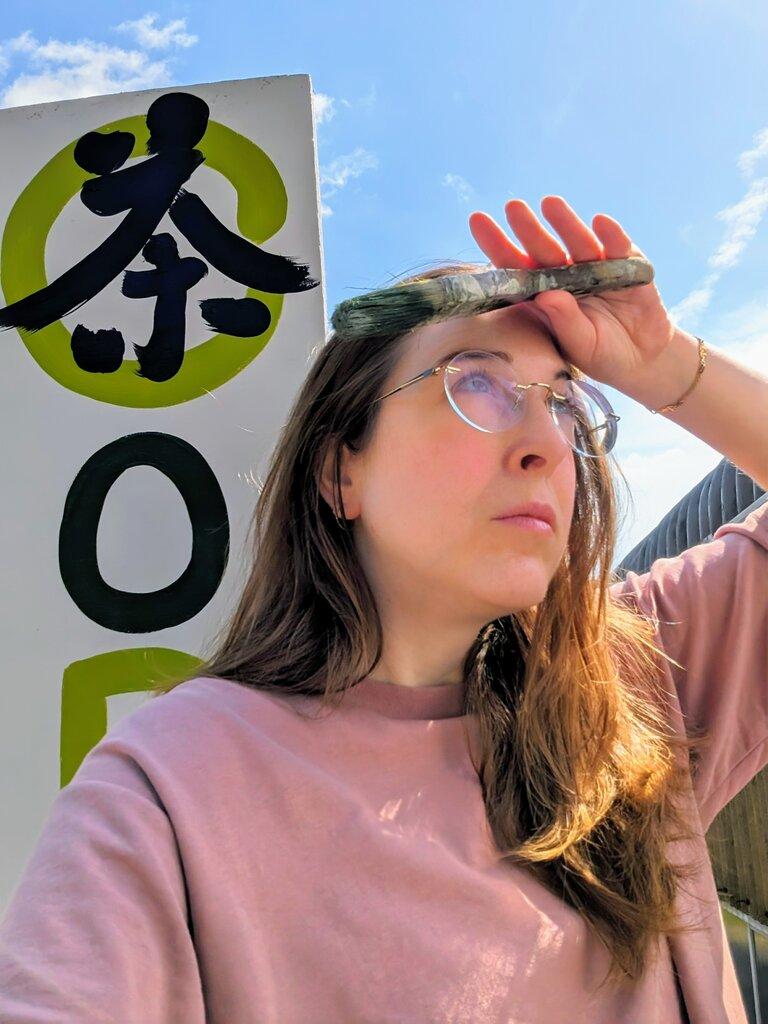
Why Obubu?
Choosing to intern with a small tea company speaks to my desire to explore alternative paths to health, beyond traditional medicine. As a nurse, tea has always intrigued me with its potential health benefits, and this internship offers a chance to dive deep into its world. Working closely with a smaller team means I can really get my hands dirty, learning everything from where the tea comes from to how it’s processed and how it reaches customers.
More than just making tea, I’m excited to delve into the science behind it. With my nursing background, I want to understand exactly how tea’s compounds can boost health. By studying how these compounds work in the body, I hope to uncover more about tea’s potential to promote wellness.
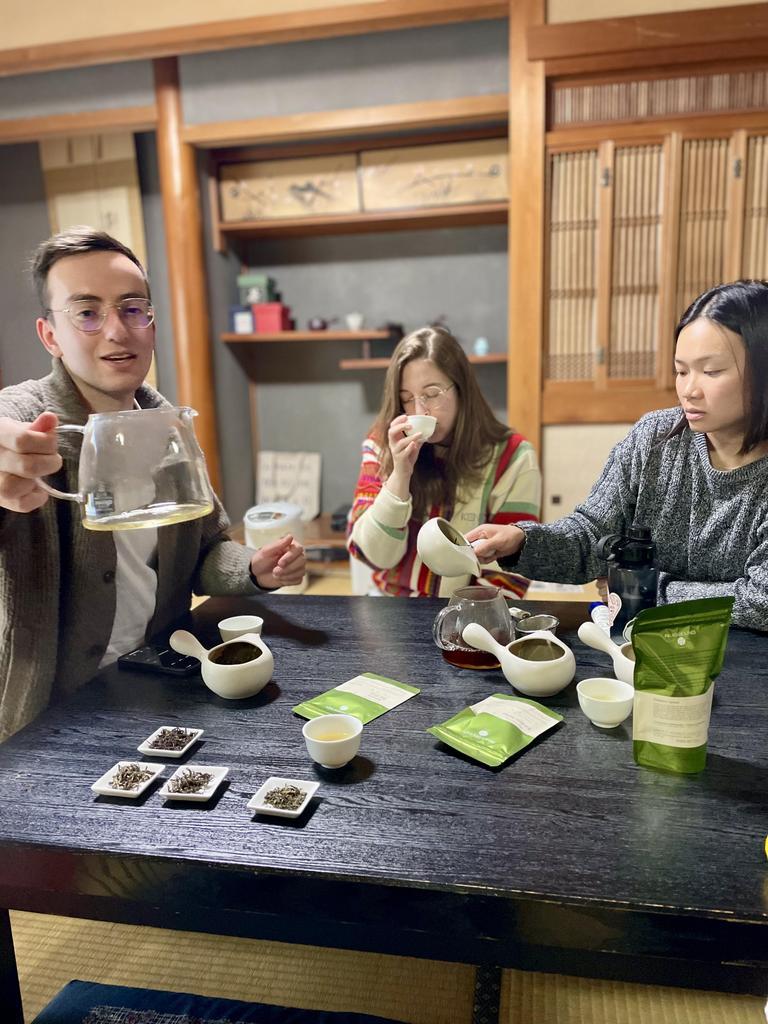
This internship isn’t just about personal interest; it’s about bridging my nursing knowledge with natural health solutions. I see it as a way to bring more holistic options to the table for my patients, empowering them with choices that support their well-being in meaningful ways.
I was quite surprised by the diverse revenue streams and the sheer dedication and creativity behind them caught me off guard. I didn’t expect a small tea company to be so resourceful in drumming up business. From selling tea in unexpected places to dreaming up unique events and collaborations, their hustle knows no bounds. It’s inspiring to see how Obubu thinks outside the box to keep things flowing. This experience has opened my eyes to the power of creativity and determination in making a business thrive, no matter how small.
Opting for a small company for my internship was a no-brainer. In Obubu, I get to wear multiple hats and have a real impact. I also got to work in a team of dedicated individuals, each with their own unique charm.
Unlike big corporations where I might feel like a tiny cog in a giant machine, in a small tea company, my contributions are tangible and meaningful. I can learn the ropes from top to bottom, gaining hands-on experience in every aspect of the business. Plus, the close-knit environment fosters mentorship and collaboration, allowing me to soak up knowledge and skills faster. Ultimately, choosing a small company means diving headfirst into real-world learning and making a genuine difference from day one.
During Obubu
My first steeps
Adapting to a new work environment in Japan presented both challenges and opportunities for growth. From navigating cultural nuances to adjusting to different work practices, every day brought new lessons. The initial discomfort was palpable, feeling like an outsider amidst the unfamiliar surroundings. Yet, with time and perseverance, I slowly found my footing and embraced the journey of acclimating to my new surroundings.
Building relationships with colleagues and senpais through shared experiences and cups of tea became key to my integration.
Working on a tea farm offered a mix of tough but satisfying tasks. Despite arriving in the cold and rainy winter, I enjoyed getting my hands dirty with pruning and harvesting. As the weather warmed up, planting new shoots brought me joy. It was hard work, but seeing the plants thrive under the spring sun made it all worthwhile. Being a nurse used to physical labour, I embraced the challenges and found fulfilment in the tangible results of my efforts on the bustling tea farm.
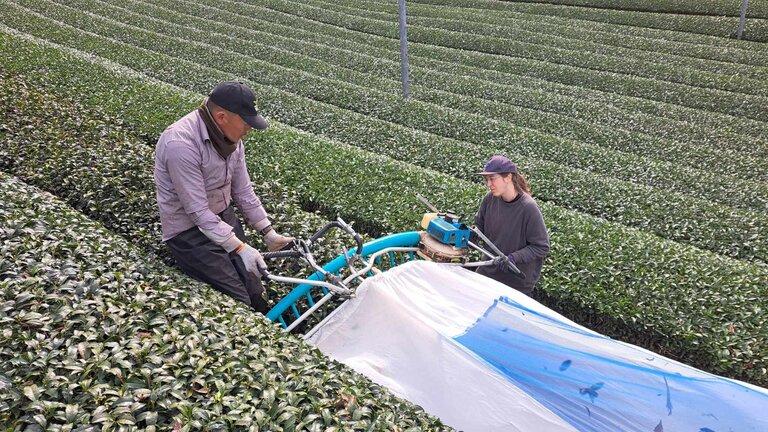
Rolling up my sleeves
As an intern at Obubu Tea, I got to roll up my sleeves and dive into some unexpected projects. One of the most memorable? Putting up those cosy wood walls on the second floor.
Working alongside other interns and assistant managers, it was a hands-on journey of trial and error. We measured, cut, and drilled each plank, learning as we went. Sure, there were knots in the wood and a fair share of misaligned measurements, but every challenge was a chance to pick up a new skill.
What made it all worth it? Seeing the finished product. When tea tour guests now wander up to that second floor, marvelling at the views we helped create, it’s a special kind of satisfaction. Those walls aren’t just wood; they’re a testament to our teamwork and determination.
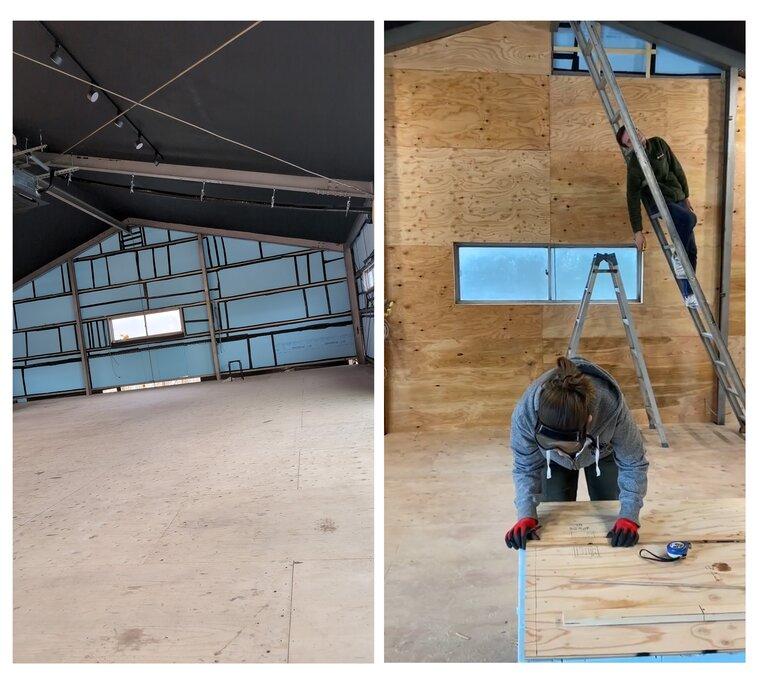
Building those walls wasn’t just about the end result—it was about the journey. I can say I walked away with a newfound appreciation for craftsmanship and a whole new set of skills I never knew I needed.
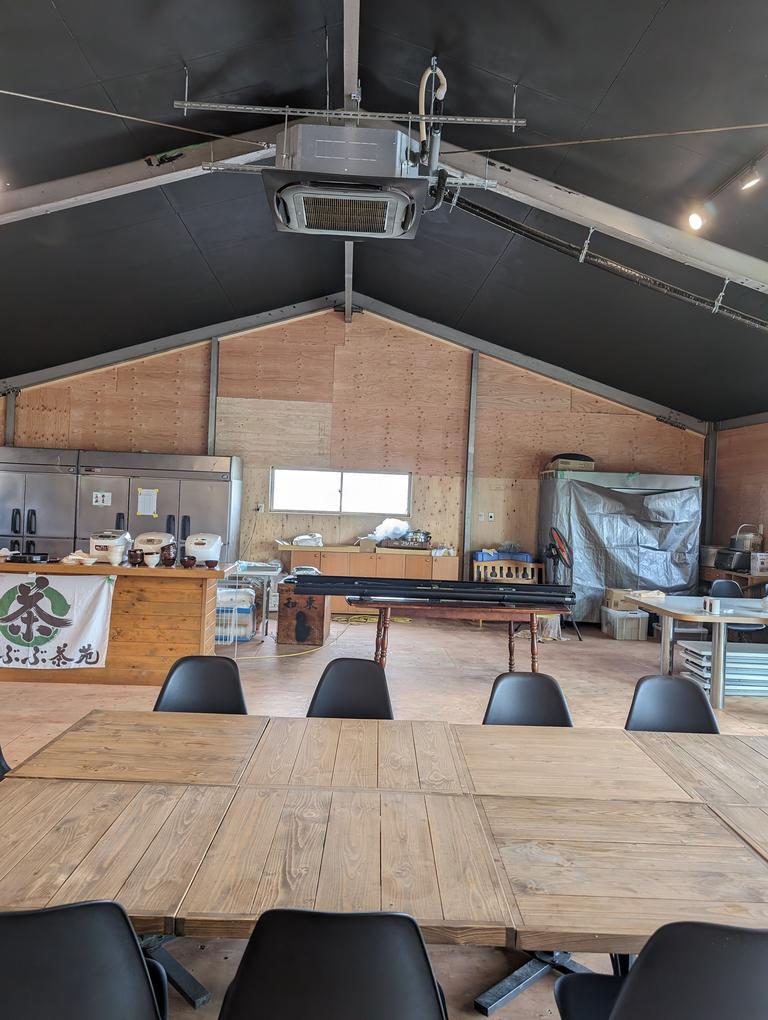
Ichi-go, ichi-e
Exploring the Kyoto, Nara, Shiga, Mie and Hyogo prefectures, either by train or during my many car trips, was an enchanting journey filled with rich cultural experiences and natural wonders. Each new destination offered a unique tapestry of history, tradition, and natural beauty, making every excursion a memorable adventure and most importantly, it also became a culinary adventure I’ll never forget.
However, it was witnessing the cherry blossoms bloom across these cities near the end of my internship that truly captured my heart. The ephemeral beauty of the sakura season painted the landscape with delicate shades of pink, infusing the air with a sense of enchantment and renewal.
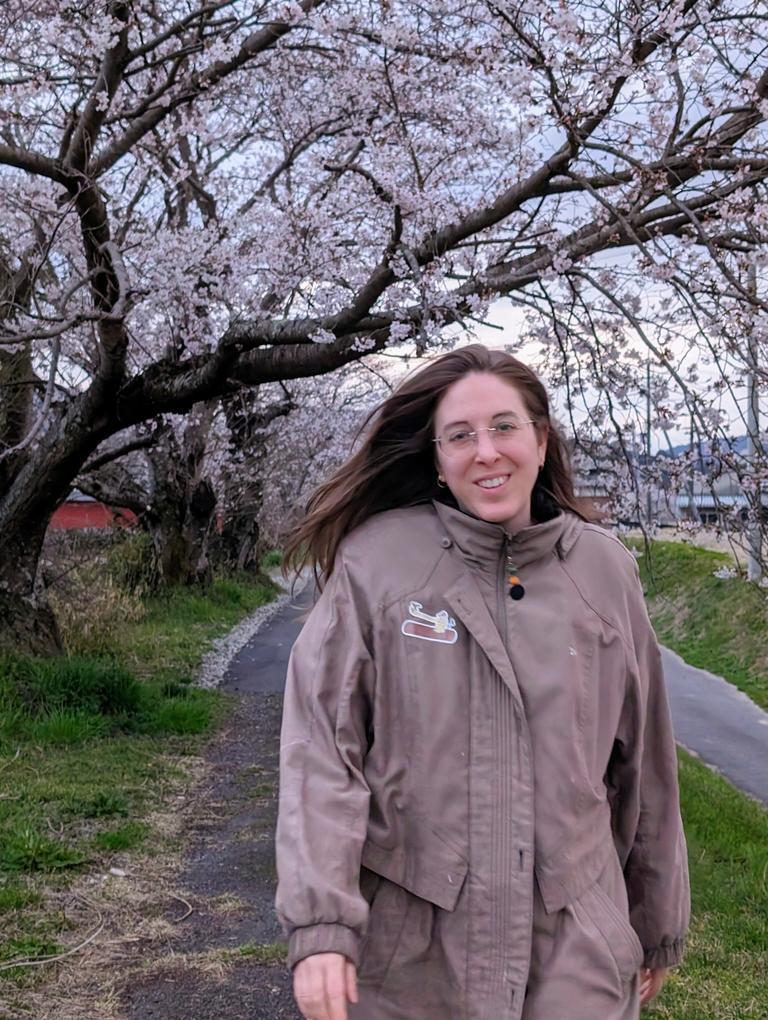
In the ephemeral beauty of cherry blossoms, wabi-sabi finds expression: the fleeting blooms embody impermanence. As the petals danced in the gentle breeze, I couldn’t help but reflect on the past three months, on the beauty of impermanence and the profound significance of embracing the present moment and not what might come next.
Not all who wander are lost
Deciding what to do for my intern project was actually quite simple.
I wanted to create a tangible change which will leave a mark for years to come, and ideally I wanted to be covered in paint and sawdust for as long as possible while doing it.
Colourful signs are more than just markers—they’re the face of a small business. For a tea company, they’re like a handshake, introducing visitors to the brand’s vibe before they even step inside. And when most of our tea tour guests don’t speak Japanese, those signs become crucial guides, helping them find their way around without getting lost in translation. It’s not just about pointing people in the right direction; it’s about making them feel at home and confident they’ve found the right spot for a sip of something special.
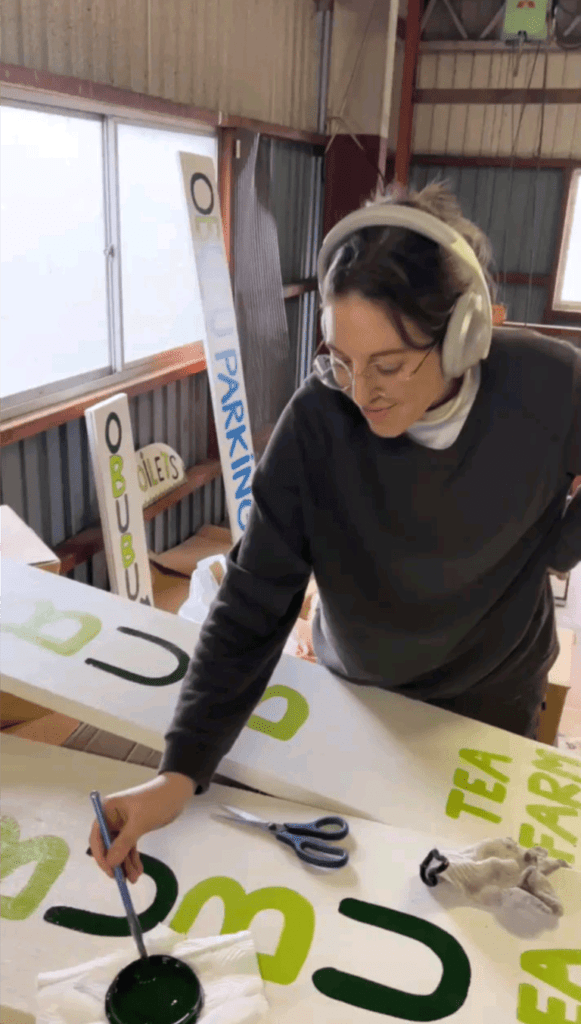
Working on those signs wasn’t just about practicality—it was a creative journey that I found incredibly rewarding. As a nurse, I’m used to using my hands for precise tasks, but this was a different kind of precision, a different kind of care. Sketching out designs, mixing paints, and seeing my ideas come to life on those boards was like therapy. It tapped into a part of me that doesn’t always get a chance to shine in my day-to-day work. There’s something deeply satisfying about creating something tangible, something that speaks to people even before they read the words.
Being able to infuse those signs with the personality of our brand was the cherry on top. Each stroke of paint was a chance to capture the essence of what makes our tea company special. Whether it was a playful illustration of a tea kanji or a serene depiction of a tea leaf, I poured a little piece of myself into each design. And when visitors would pause to admire them or snap a photo for their socials or friends and family, it felt like I’d succeeded in my mission—to create something that not only pointed the way but also made people smile.
In the end, those signs became more than just markers—they became ambassadors for our brand, welcoming guests with open arms and setting the stage for the tea-tasting adventures that awaited them inside. And knowing that I had a hand in that, quite literally, made every moment of creativity and hard work worth it.
Is Wabi-sabi the cure for perfectionism?
In the serene atmosphere of Obubu’s first pottery workshop, something unexpected happened; I became utterly fascinated with the vessels more than the tea they held. Moulding clay with my hands sparked a newfound passion for pottery, and soon, I was hooked.
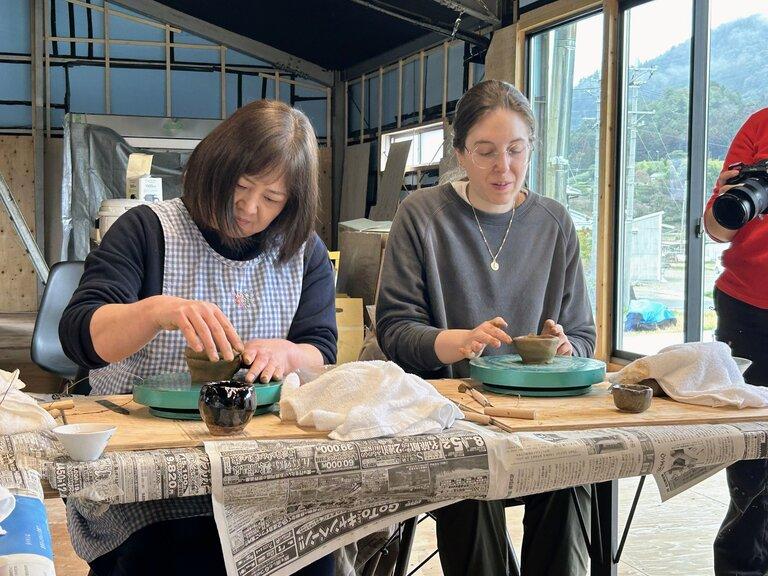
From traditional Japanese styles to modern designs, I dove headfirst into the world of ceramics, eager to learn everything I could about this art form. With each piece I created, I found myself drawn deeper into the process, relishing the imperfections that made each piece unique.
As my thirst for not just very good tea, but also for knowledge about pottery grew, I attended workshops, classes and museums, soaking up knowledge like a sponge.
That’s why I decided to attend pottery classes in Shigaraki and Tokoname, yet, as a perfectionist, I struggled with the idea of embracing imperfection in my art.
Every lopsided curve or uneven line felt like a failure. That’s when I discovered wabi sabi during our second JTB (Japanese Tea Basics) with assistant manager Pau, and learnt more about that aspect of Japanese philosophy which celebrates imperfection and impermanence.
Instead of seeing flaws, I began to see character and beauty in the imperfections of my work. It was liberating. I learned to let go of my need for perfection and embrace the organic, the rustic, the imperfect.
Now, pottery isn’t just a hobby—it’s a journey of self-discovery and creative expression. Each piece I create tells a story, a reminder of the beauty that lies in imperfection and the wisdom of embracing life’s impermanent nature.
After Obubu
Going back home to England after spending three months surrounded by the gentle life in Wazuka, where the air is crisp and clean, and low clouds lazily float through the mountains is going to be tough. I will certainly miss strolling through the lush tea fields, learning so much every single day and sipping the perfect cup of tea prepared by one of our brewers.

I will also miss the community, where laughter and camaraderie fill the air.
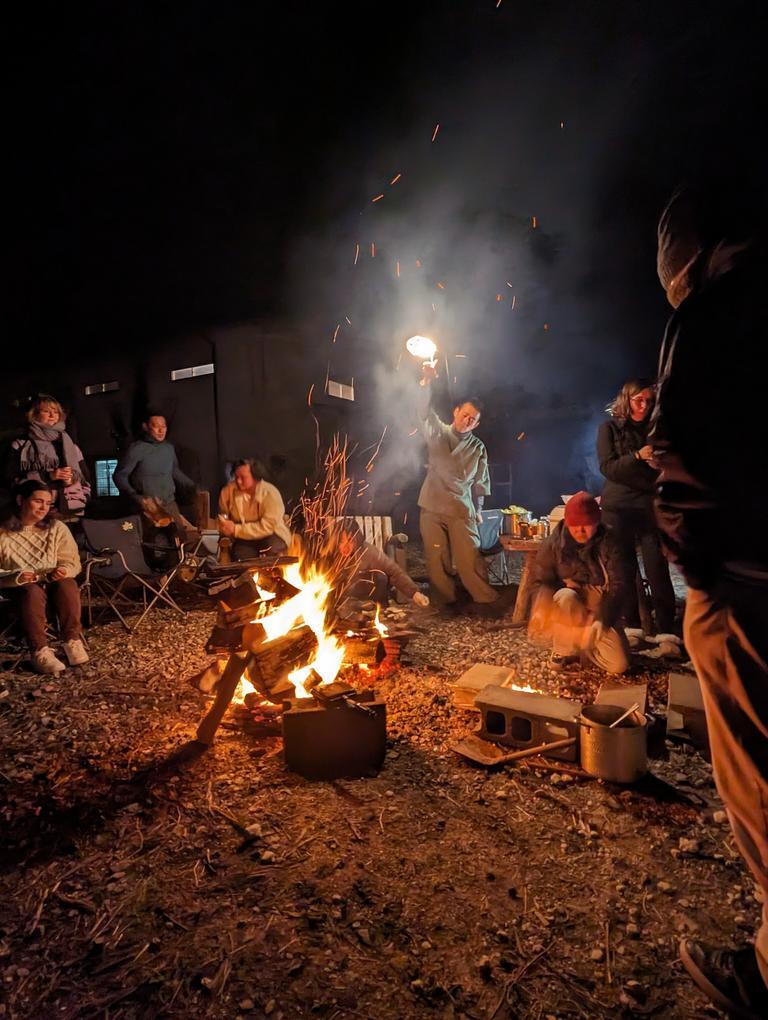
However, before this experience, I had been stuck in tunnel vision, unaware of the broader artistic and social world beyond my immediate surroundings.
Interning at Obubu provided a profound shift in my perspective, particularly regarding my passion for ceramics. Immersing myself in a new culture ignited my creativity and deepened my appreciation for the craft.
This experience solidified my resolve to pursue a career in ceramics, blending traditional methods with contemporary aesthetics.
My internship was, if anything, a journey of self-discovery that reaffirmed my calling, and for that I will be forever thankful.
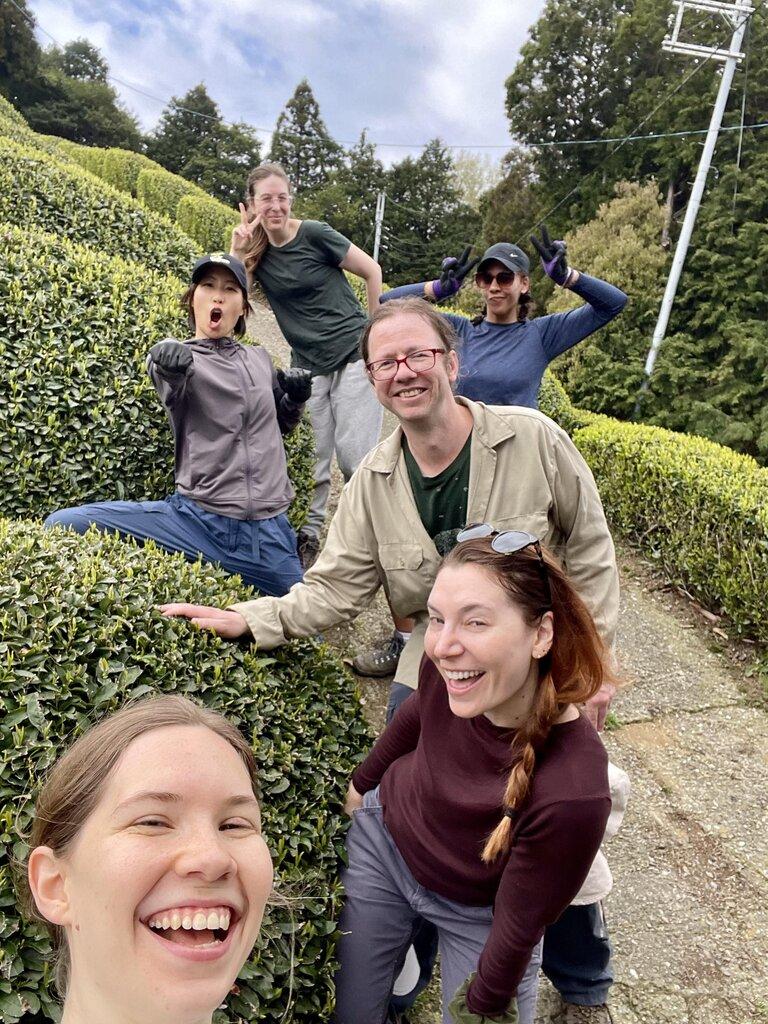
Sore de… a few thank yous are due:
To Akky-san, for his eternal smile that never seems to fade, always spreading warmth and positivity wherever he goes.
To Hiro-san, whose boundless optimism is infectious, reminding us to always look on the bright side of life.
To Kayo-san, who brings a sense of calmness to the chaos, her serene presence (and incredible soup) ground us in moments of stress.
Thank you so much to Miwako-san (and Sakura-chan!), whose endless energy and amazing versatility left me wondering if there is something she can’t do.
To George-san, who kept the business running smoothly, thank you for the interesting conversations and for your serious unseriousness.
And to Matsu-san, I very much enjoyed his visits and I will always remember the serene melody of the piano drifting through the kitchen at Obubu House, adding an extra touch of magic to our days.
To our assistant managers, thank you for your unwavering dedication, hard work and the many cups of tea we shared. And to our new interns, thank you for your patience and friendship as you embark on this journey.
